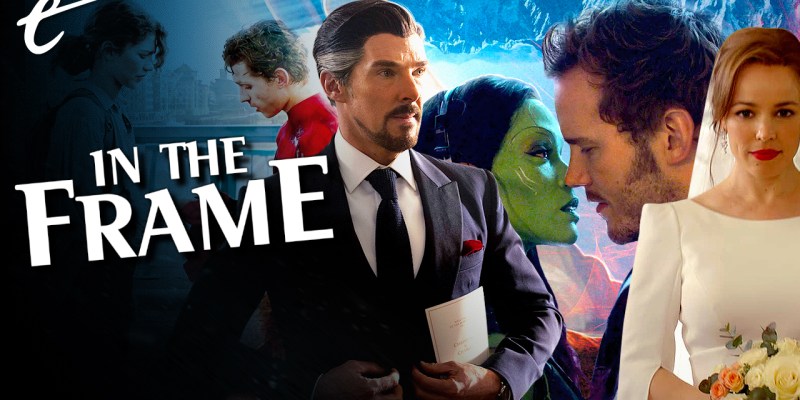This article contains spoilers for Guardians of the Galaxy Vol. 3 and several recent MCU movies in its discussion of breakups.
There is an interesting recurring motif in a lot of the Marvel Cinematic Universe (the MCU) following the release of Avengers: Endgame. To put it quite simply, one of the most common linking threads across these projects has become the idea of the breakup — of characters confronting the reality that their long-term relationships have come to an end and that the best that an individual can do when confronted with that reality is to move on with their lives.
Of course, this isn’t historically how movies have worked. Generally speaking, the romantic subplots in crowd-pleasing blockbusters tend to focus on the sexual tension between the male and female leads pushing them towards one another: Indiana (Harrison Ford) and Marion (Karen Allen) in Raiders of the Lost Ark, Owen (Chris Pratt) and Claire (Bryce Dallas Howard) in the Jurassic World trilogy, Dom (Vin Diesel) and Letty (Michelle Rodriguez) in the Fast & Furious films.
This was true within the superhero genre. Spider-Man movies were built around the relationship between Peter (Tobey Maguire) and MJ (Kirsten Dunst). The early X-Men films were focused on the romantic triangle between Scott (James Marsden), Jean (Famke Janssen), and Logan (Hugh Jackman). Even early MCU movies had their couples: Tony (Robert Downey Jr.) and Pepper (Gwyneth Paltrow), Steve (Chris Evans) and Peggy (Hayley Atwell), Thor (Chris Hemsworth) and Jane (Natalie Portman).
Of course, these relationships didn’t always end on a happy note. These stories often operated according to the classic “will they / won’t they?” tension. Some films might end with the hero and their love interest separating because their duty comes between them, as with Bruce (Robert Pattinson) and Selina (Zoë Kravitz) in The Batman. However, in many cases, there is a happily ever after: Tony and Pepper have a daughter (Lexi Rabe), and Steve travels through time to be with Peggy.
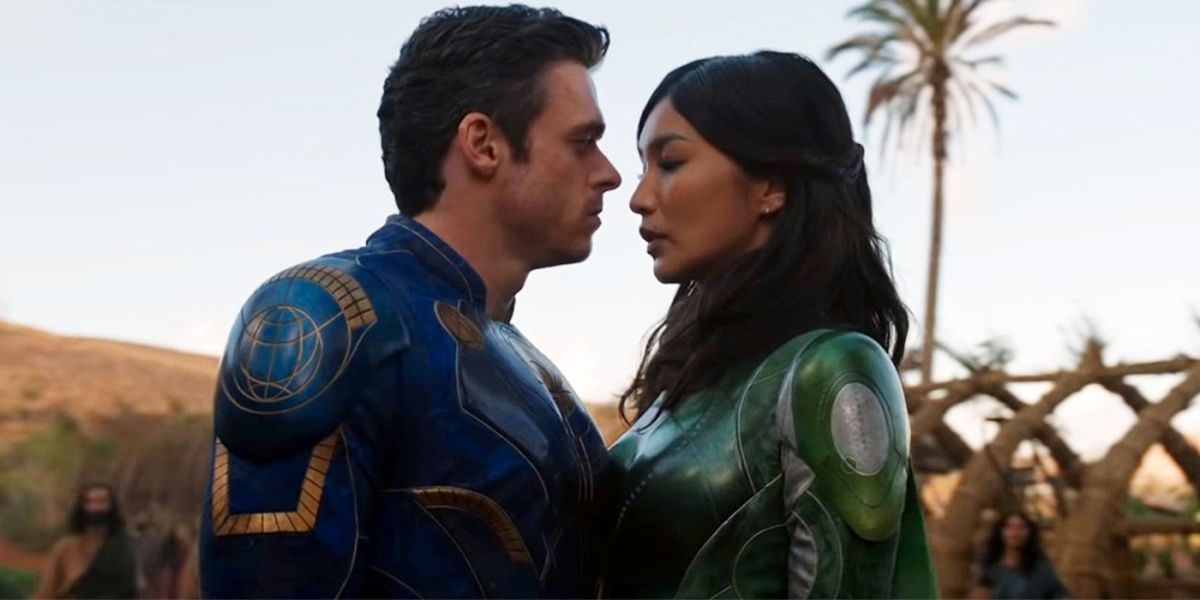
As such, it is interesting that so many of the recent MCU movies have been about breakups. It’s not just that they feature divorced couples, like Scott (Paul Rudd) and Maggie (Judy Greer) in Ant-Man, and it’s not that they end up with the characters taking a temporary break that will presumably be resolved in a later installment. These are movies that foreground a couple that are navigating the complicated emotional aftermath of a relationship that has already been resolved.
Eternals is a prime example of this. While the film suggests a burgeoning romance between Sersi (Gemma Chan) and Dane (Kit Harington), Dane is sidelined quite early in the movie. Sersi’s most developed relationship within the film is with Ikaris (Richard Madden). Sersi and Ikaris were a couple for millennia but broke up centuries before the events of the film. The murder of their leader Ajax (Salma Hayek) forces Sersi and Ikaris to reunite, trying to figure out their purpose.
In a more conventional film, Sersi and Ikaris might reconnect. They might recapture the spark that they shared in their youth. Their time apart might offer each insight into the other. However, Eternals is not about reconciliation and reunion. Sersi eventually discovers that Ikaris has refused to change and grow and that he murdered Ajax when she tried to rebel against their core programming. Ikaris is ultimately the villain of the film, and Sersi’s arc involves her confronting and overcoming him.
The metaphor becomes more overt in Doctor Strange in the Multiverse of Madness. At the start of the film, Stephen Strange (Benedict Cumberbatch) attends the wedding of his ex-girlfriend, Christine Palmer (Rachel McAdams). This poses an existential challenge to Stephen. “Truly, I’m just glad that you’re happy,” Stephen assures her. She replies, “Are you?” It’s a question that guides the rest of the movie. Is Stephen truly happy? Has he ever gotten over his breakup with Christine?
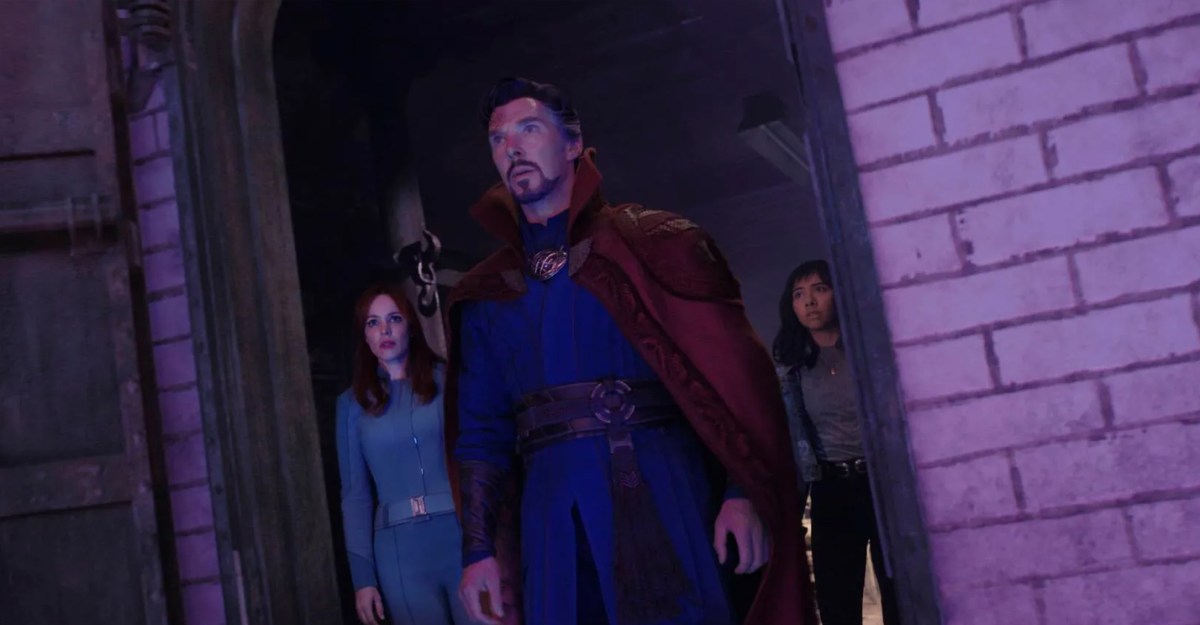
A more conventional movie might find a way around that heartbreak. As Stephen journeys through the multiverse, he is drawn to an alternate version of Christine that joins him on his adventures, hinting at the possibility of reconciliation. However, Stephen eventually finds himself in conflict with an alternate version of himself living in a collapsed reality. That broken version was driven mad looking for a world where Stephen and Christine were together. “I didn’t find it,” he admits.
Multiverse of Madness is about Stephen accepting that he and Christine will never be together. The film contrasts Stephen with an alternate version of himself obsessing over the breakup, but also with Wanda Maximoff (Elizabeth Olsen), who is willing to sacrifice everything to find a reality where she can have the happy family life she conjured for herself in WandaVision. “If you knew… there was a universe, where you were happy, wouldn’t you wanna go there?” she asks Stephen. At what cost? Nostalgia is suffocating.
The theme carries across to Thor: Love and Thunder. Thor and Jane had broken up at some point between Thor: The Dark World and Thor: Ragnarok, in large part due to Natalie Portman’s frustration with how Marvel Studios had treated Patty Jenkins. The breakup is a joke in both Ragnarok and Endgame, with Thor reduced to something of a punchline of a guy pining for the scientist who dumped him. It’s not explored with any real depth of complexity.
In contrast, Love and Thunder foregrounds the breakup. Via narration, Korg (Taika Waititi) explains how the two drifted apart, suggesting a very banal and ordinary relationship dissolution for a superhero couple. Thor seems to be stuck in the same sort of existential rut as Stephen. “Beneath his God Bod, there was still a Sad Bod just trying to get out,” Korg explains. “Because all of the bods that Thor had worn over the years couldn’t hide the pain that he was feeling on the inside.”
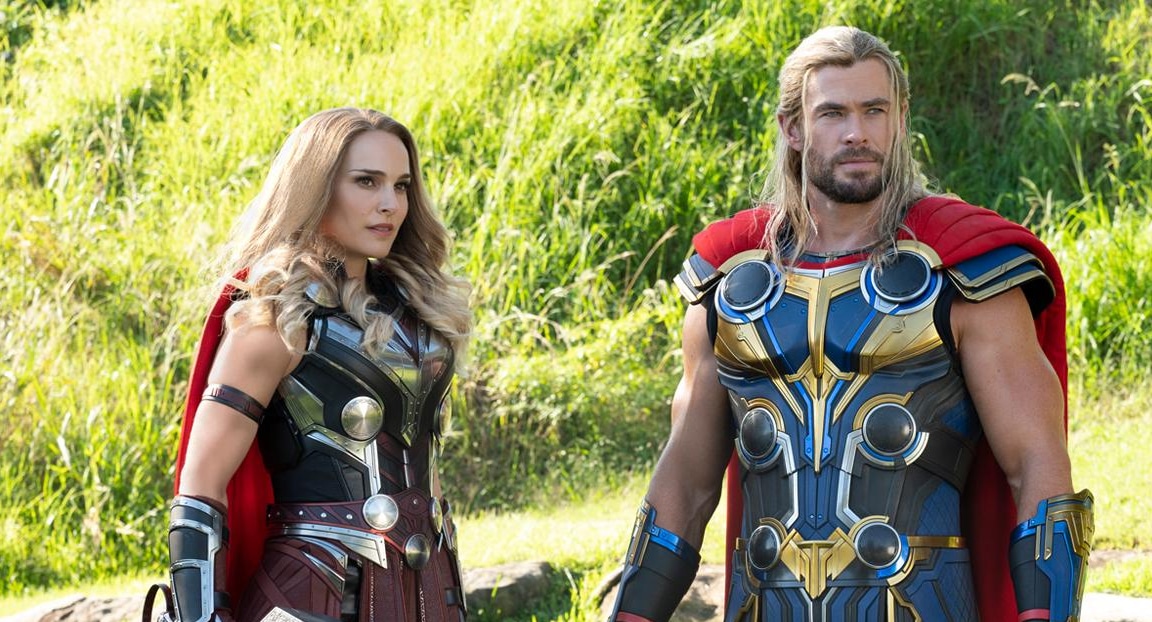
Inevitably, Thor and Jane reunite. Jane has taken Thor’s hammer as her own and become a superhero. When the children of Asgard are kidnapped, the pair embark on an epic quest together, like Stephen and Christine in Multiverse of Madness. Unlike Stephen and Christine, the pair do reconnect. However, Love and Thunder doesn’t allow the pair a happy ending. Jane has been diagnosed with terminal cancer and dies in Thor’s arms. He really has to learn to let her go.
There is a similar arc playing across Guardians of the Galaxy Vol. 3. Peter (Chris Pratt) was in love with Gamora (Zoe Saldaña). However, Gamora was murdered by her father Thanos (Josh Brolin) in Avengers: Infinity War. To complicate matters further, a time-displaced version of Gamora escaped into the present at the climax of Endgame, but with no memory of her time with Peter. As such, Peter is not only mourning his relationship with Gamora, but constantly reminded of it.
It’s not a conventional breakup, but Guardians of the Galaxy Vol. 3 finds an emotional reality in the idea of a breakup. Peter longs to reconnect with Gamora and struggles with the reality that she is a completely different person. He is chasing the relationship that they had, convinced that Gamora can find her way back to herself. Indeed, a major arc of Guardians of the Galaxy Vol. 3 is Gamora rediscovering her heroism and finding the decency that always existed inside herself.
Like Eternals, Multiverse of Madness, and Love and Thunder before it, Guardians of the Galaxy Vol. 3 doesn’t offer a trite narrative of reconciliation. “What are you so afraid of in yourself that you need me to be something for you?” Gamora demands of Peter at one point. As she says goodbye, she confesses, “I’m still not who you want me to be.” Peter agrees, acknowledging, “Who you are ain’t so bad.” Gamora maintains a distance and detachment from various group displays of affection.
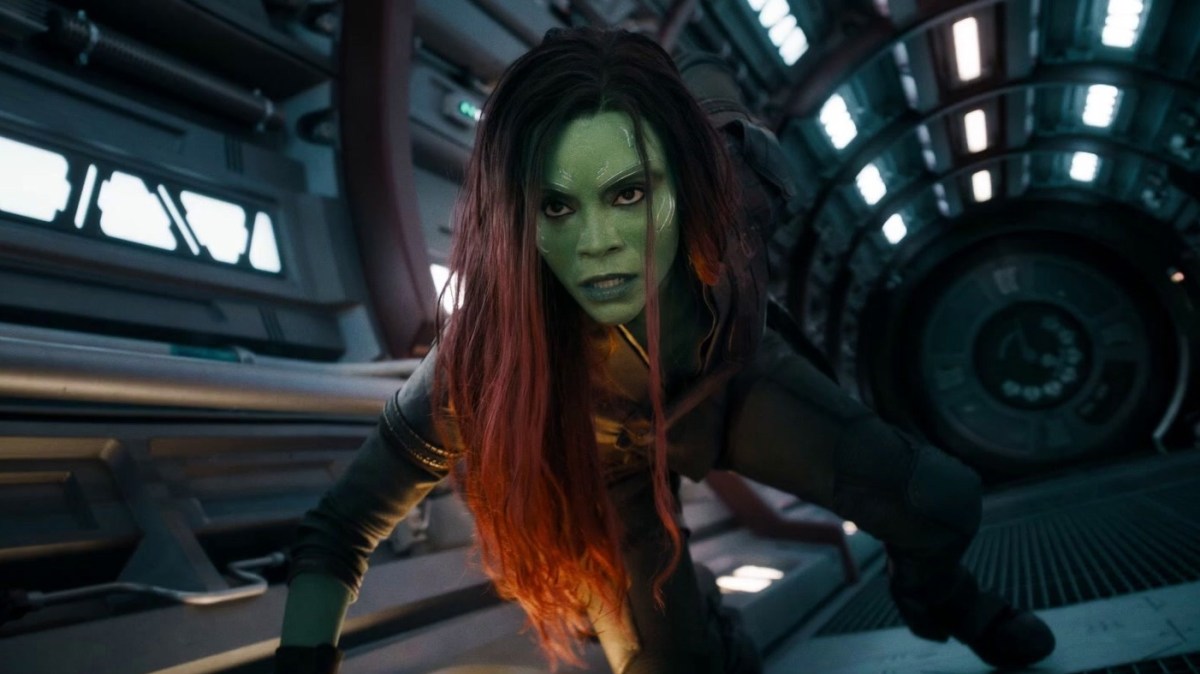
Why have the recent Marvel Studios movies gravitated towards this theme? It may simply be a reflection of how movies have become increasingly sexless, and so that sexlessness is now being woven into narrative and thematic arcs. In some cases, such as with Thor and Jane in Love and Thunder, or even the separation of Peter (Tom Holland) and MJ (Zendaya) at the end of Spider-Man: No Way Home, this may just be a temporary separation. After all, Jane’s arc may not be complete.
More to the point, there is probably some value in making a series of movies that are aimed at a predominantly young and male demographic that explore the reality that sometimes relationships don’t work out. Movies, television shows, and comic books often reduce female characters to prizes to be won by their male leads, and there is something worthwhile and commendable in making a series of films about how that isn’t how life works. It’s worth reminding audiences that good guys aren’t entitled to get the girl.
However, this recurring motif also makes sense as a metaphor. After all, No Way Home and Guardians of the Galaxy Vol. 3 are arguably “breakup” movies in a less literal sense. No Way Home, which ends with Peter being forgotten by his girlfriend MJ, feels like a “divorce movie” between Sony and Marvel Studios, navigating their shared custody of the Spider-Man brand. Guardians of the Galaxy Vol. 3 feels at times like it’s exploring a breakup between director James Gunn and Disney.
The recent Marvel Studios productions feel a little bit like the company navigating a midlife crisis. While it’s easy to exaggerate the encroaching threat of “superhero fatigue,” it is fair to acknowledge that the studio doesn’t have the same hold on popular culture that it once did. The relationship between these movies and their audiences are shifting. This is only natural. This franchise has been running for over 15 years. Audiences and tastes inevitably shift across such an extended period.
As such, this emphasis on the dissolution of romantic relationships — and the understanding that nothing lasts forever — feels thematically appropriate. There is a certain dignity in understanding that perhaps the intense swell of love that general audiences felt for these movies could never be permanent. There is a grace in being able to move on and to accept that others have moved on as well. That’s a very fitting recurring theme for a company in Marvel Studios’ position.
